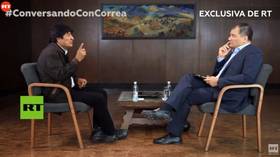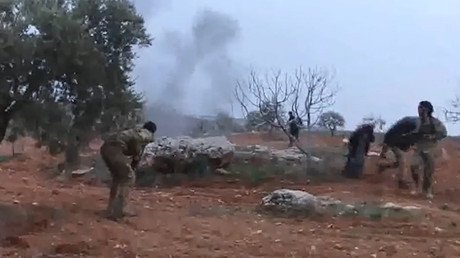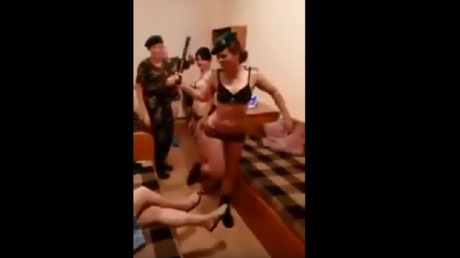Bolivia coup ended a period of stability the country hadn't seen for over 180 years, Evo Morales tells Rafael Correa on RT

Deposed Bolivian president Evo Morales, speaking exclusively to RT Spanish, has predicted a return to turbulent times for his country. He’d had a long-term development plan but the ‘coup’ ended a rare period of stability, he says.
“There had never been political calm in Bolivia, with the exception of the time when Andrés de Santa Cruz was in power, between 1829 and 1838… It was the period of the greatest prosperity for the country. It used to be one of the leaders in the region,” Morales was speaking with Ecuador’s former president, Rafael Correa, on his show Conversation with Correa, aired on RT Spanish.
But then Bolivian political life became a rollercoaster, with “presidents swapping every two years,” which took a heavy toll on the wellbeing of the population, Morales lamented.
“I remember when I was a soldier in the armed forces in 1978, three presidents changed in one year; all were generals… During the five years before I took office [in 2006], there were five presidents.”
Also on rt.com ‘Assassination attempt’: Bolivia’s Morales is certain helicopter malfunction was bid to kill himNone of a host of leaders had a long-term or even a medium-term development plan for the country, Evo Morales said.
He insists that his rule gave Bolivia a rare period of stability, which was “very important” not just for the country itself but for the whole Latin American region. “But now a coup has taken place” and this stability is over, the 60-year-old ex-president said with regret.
'Fascist' opposition targeted officials' relatives
Morales described the tactics employed by the country’s opposition to gain power as “fascist”; it included attacks, blackmail and intimidation. “They burn the homes of officials down. The police do nothing and then join the protesters.”
The ex-president said the demonstrators targeted the relatives of his allies to make them resign from their positions.
They threaten the wives of public servants, saying: ‘If your husband doesn’t leave, we’ll burn you alive.’ The wives call their husbands in tears and eventually they quit.
This happened to President of the Chamber of Deputies, Victor Borda, who had his brother taken hostage, and to union leader Theodoro Mamani, who was told that his wife and daughter would be executed, according to Morales.
He said that the betrayal by the Bolivian military became a huge shock for him as he'd had “great” relations with all of its top commanders before the coup.
“I was sure that there were patriots and anti-imperialists among the military. But it turned out that some commanders only served those who paid more. I was surprised. I just couldn’t believe this.”
The military commanders had lost some of their influence while he was in office and “couldn’t forgive us for this,” Morales suggested.
Also on rt.com Bolivian coup was all about the lithium & OAS had a hand in it, ousted president Morales tells RTEvo Morales announced his resignation as Bolivian President on November 10, after receiving an ultimatum from the military, who’d sided with the opposition. The leftist leader said he quit in order to calm the violent protests and to protect his political allies and Bolivia’s indigenous people from persecution. He then fled the country, receiving political asylum in Mexico and promising to keep fighting to return to office.
Watch Evo Morales’ full interview with Rafael Correa in Spanish here.
Think your friends would be interested? Share this story!














